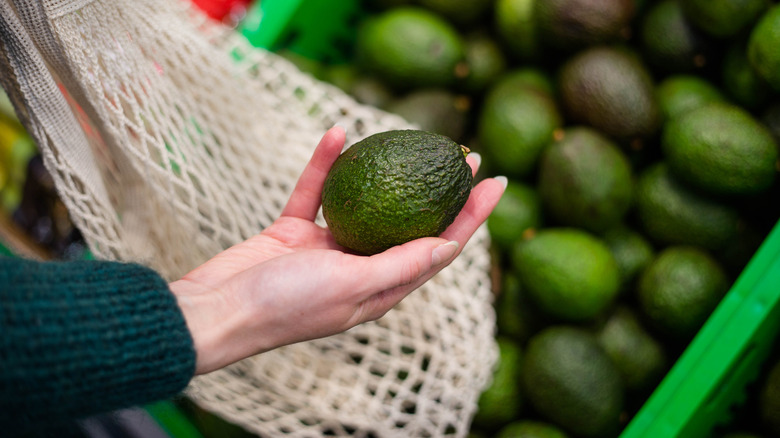There's Evidence This Fruit Can Help Your Brain As You Age
From bone loss to wrinkles, our bodies naturally age as we get older — and that includes our brains. Aging affects our brains in a multitude of ways, but there may be a food that can help: fruit.
As we get older, certain parts of our brains get smaller, according to the National Institute on Aging. These parts are responsible for complex cognitive abilities, like learning. Aging causes communication between nerve cells in certain areas of the brain to become less effective, affecting mental function. Blood flow within the brain also decreases and inflammation in the brain can increase. This may cause older adults to recall names and words more slowly, have more difficulty multitasking, and find it harder to pay attention.
While we may think of this as something that happens to elderly people, research shows that the process of cognitive decline can begin earlier than previously expected, as early as our 30s. As it turns out, however, diet may help protect against cognitive decline.
Pay attention to what you eat
A 2017 study published in the Frontiers in Aging Neuroscience journal explored the effects of high levels of lutein on cognitive function. The study looked at 60 adults between the ages of 25-45 and found that those with higher levels of lutein had neural responses that were similar to those younger than them (via Science Daily).
Lutein is a nutrient that builds up in brain tissue and the eyes. It can be found in foods like leafy greens, avocados, and eggs. The body can't make it on its own, so you have to consume lutein-rich foods in order to increase your lutein levels.
In a 2017 study published in Nutrients, eating 1 avocado a day appeared to increase lutein levels in the eyes, which are biomarkers for brain levels. These increases were connected to improved memory, attention, and problem-solving. It was thought that adding avocados to your dietary regimen could be helpful for cognitive health.
Not sure if you should add guac to your order? Science says yes.


